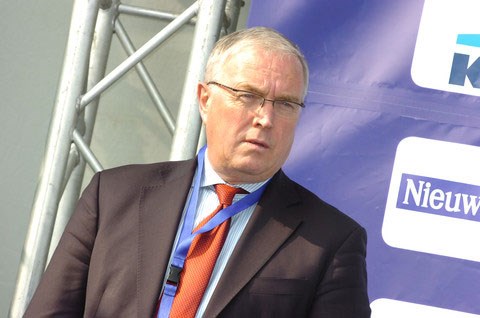WADA blasts UCI over ‘deceitful’ statements – UCI denies accusations
The Independent Commission (UCIIC) was set up by the UCI in order to investigate allegations, raised by USADA towards the UCI, of complicity in the Lance Armstrong doping conspiracy. However, WADA and USADA refused to support the Commission pointing to several critical issues regarding the Commission’s Terms of Reference, including the need for a truth and reconciliation process.
On Monday, UCI president Pat McQuaid issued a statement, saying that “the UCI Management Committee today decided that the federation could no longer fund a procedure whose outcome is likely to be rejected by such an important stakeholder. We have therefore decided to disband the Independent Commission with immediate effect”.
On Tuesday, Fahey responded to the statement with blunt criticism. He argued that “UCI has again chosen to ignore its responsibility to the sport of cycling in completing such an inquiry and has determined to apparently deflect responsibility for the doping problem in its sport to others”.
“It has decided to terminate its own Commission on the grounds that others refuse to participate, and not for any reason that the Commission was precluded from operating transparently and without fear.”
He argued that the many inadequacies of the Commission’s Terms of Reference raised by WADA, was never addressed by the UCI and was rejected without discussion.
Fahey furthermore discredited the statement by McQuaid that WADA has agreed to co-operate with the UCI on a jointly funded truth and reconciliation process.
In his statement, Fahey said that “instead of any continuing professional dialogue with WADA’s President, UCI has publicly announced by way of a press statement that WADA has agreed to work with it on some form of truth and reconciliation. This is not only wrong in content and process, but again deceitful. The fact is that WADA was awaiting a reply to the correspondence when the UCI release was delivered”.
“WADA has not and will not consider partaking in any venture with UCI while this unilateral and arrogant attitude continues. There has been no suggestion made by WADA that it will pay for or contribute to any collaborative effort with UCI into investigating UCI’s long-standing problems with doping in its sport and its alleged complicity”.
‘Blatant and aggressive untruths’
The strong criticism from Fahey and his denial that WADA has agreed to cooperate on a truth and reconciliation process with the UCI prompted an angry response from McQuaid, saying that he “cannot allow the latest blatant and aggressive misrepresentations contained in WADA’s most recent press release to go unchallenged”.
In his statement, McQuaid argued that he was “perplexed” by the attack and accused Fahey of saying one thing in public and another thing in private conversations.
He also urged Fahey to set aside his “personal vendetta and crusade against cycling aside and to support the UCI in doing what is right for cycling” and concluded “Our aims are the same: to rid cycling and indeed all sports of the scourge of doping.”
This is not the first time the UCI and WADA have had a falling out over the UCI’s handling of the doping investigations of Lance Armstrong. In 2006, the two came at odds over the UCI-commissioned Vrijman report that cleared Armstrong of any wrongdoing after sports daily L'Equipe had revealed that samples taken from Armstrong during the 1999 Tour de France showed traces of EPO, writes Reuters.
In an evaluation of the dispute, Reuters said that the long-standing row between the UCI and WADA has now taken a farcical turn, while The Guardian evaluated that the escalation of the dispute has made the chances of a wide-ranging truth and reconciliation process even more remote.
In an analysis on BBC.com, BBC sports news reporter Matt Slater argues that this latest initiative by the UCI might be a way to avoid the possible revelations that might come from the UCIIC investigation:
"The official reason for cycling's governing body effectively sacking its own independent commission into the Armstrong affair is that the US and World Anti-Doping Agencies withdrew their support, saying they had no confidence in its ability to uncover the truth. A more cynical view might be that British Paralympic legend Tanni Grey-Thompson and her two colleagues on the panel were simply more independent than the International Cycling Union (UCI) had bargained for”.
Read more:
Article on Wada and USADA’s criticism of the UCIIC terms of reference
UCI press release: UCI to disband Independent Commission in favour of Truth and Reconciliation process
WADA's statement: Statement from WADA President John Fahey in response to UCI press release of January 28, 2013
Response from UCI: UCI releases Fahey letters in response to WADA’s ‘blatant and aggressive’ untruths
Reuters article: WADA vs. UCI row escalates over truth and reconciliation
The Guardian article: Wada 'dismayed' by UCI's handling of Lance Armstrong fallout
The BBC analysis: Lance Armstrong: Wada and UCI dispute over new commission






